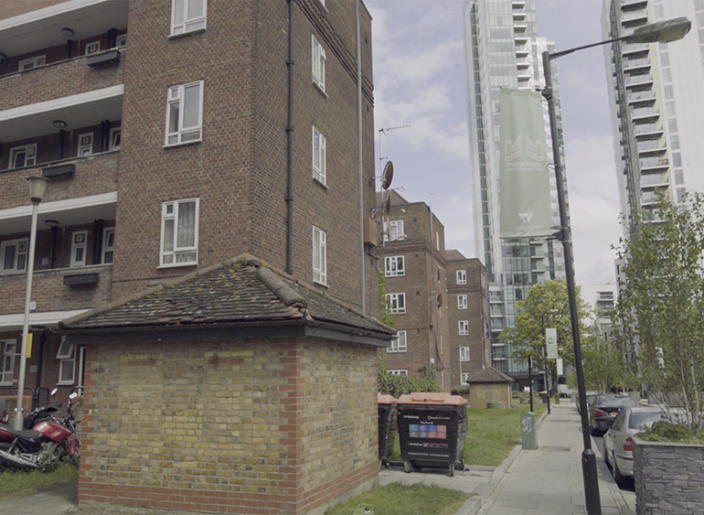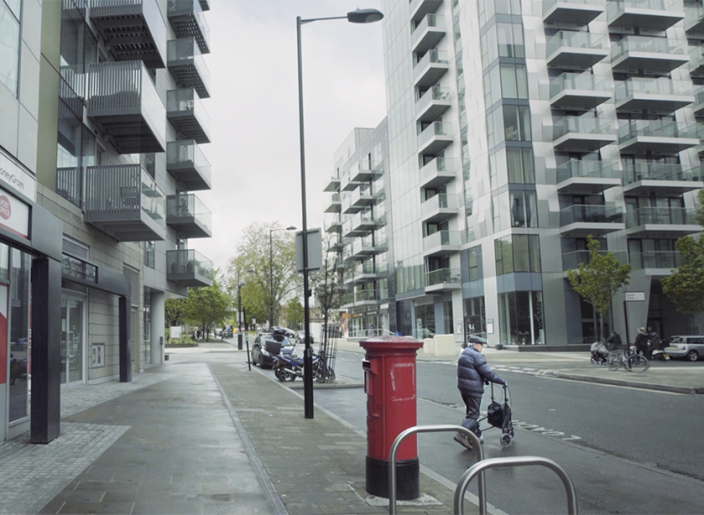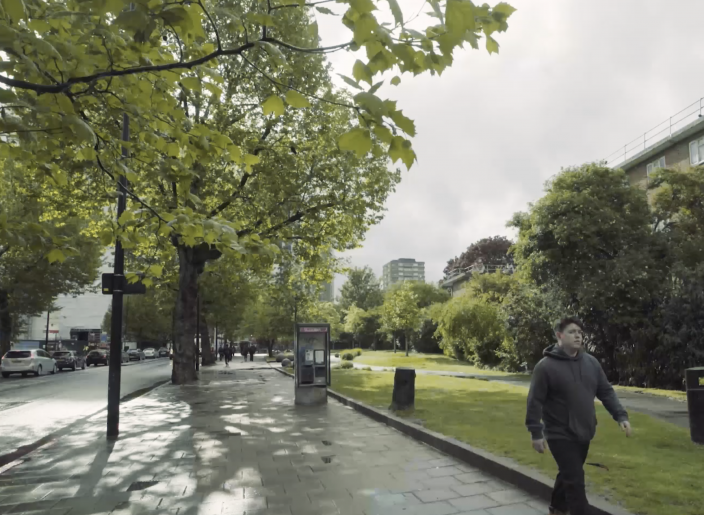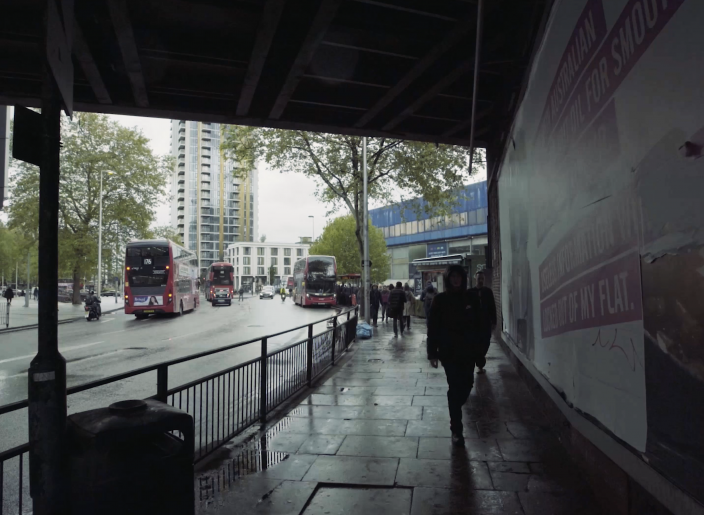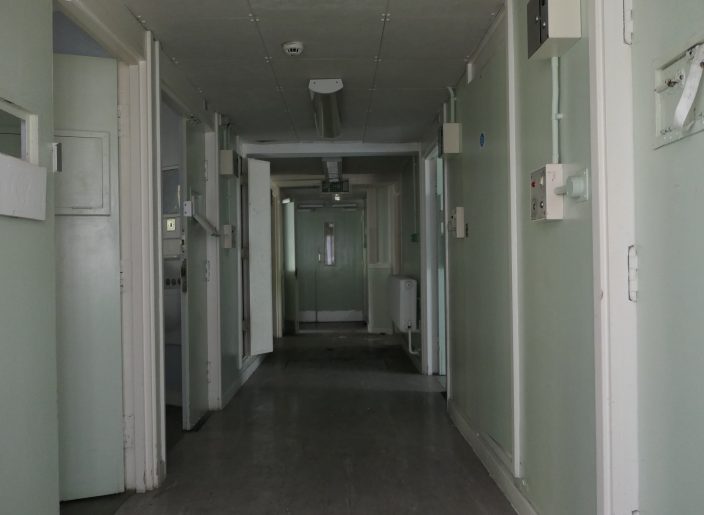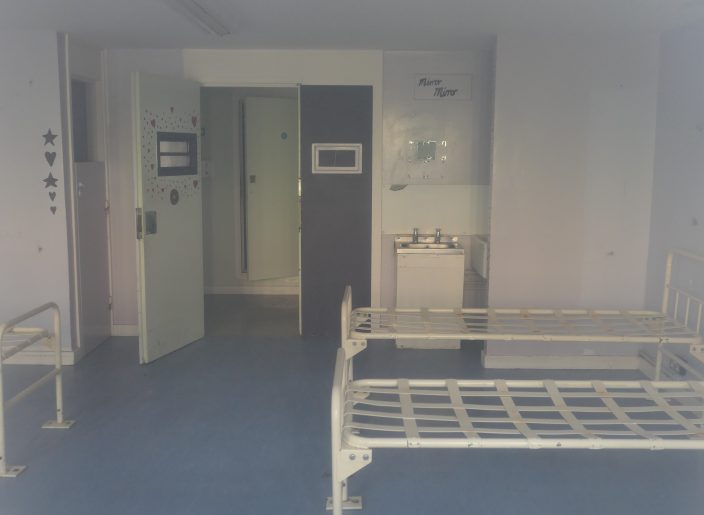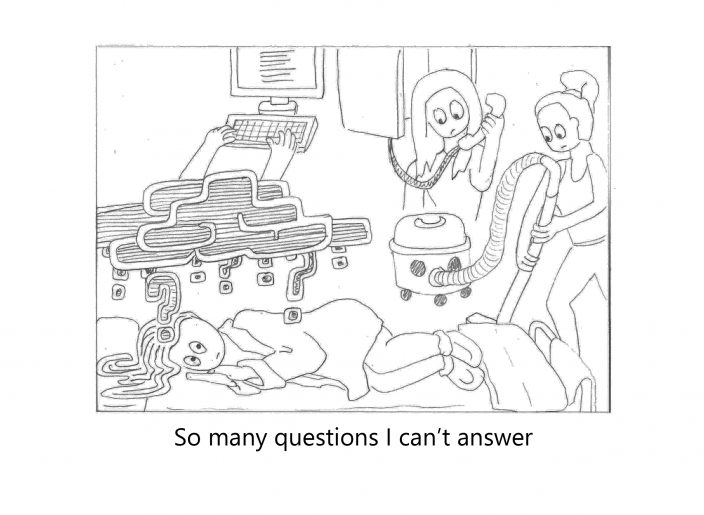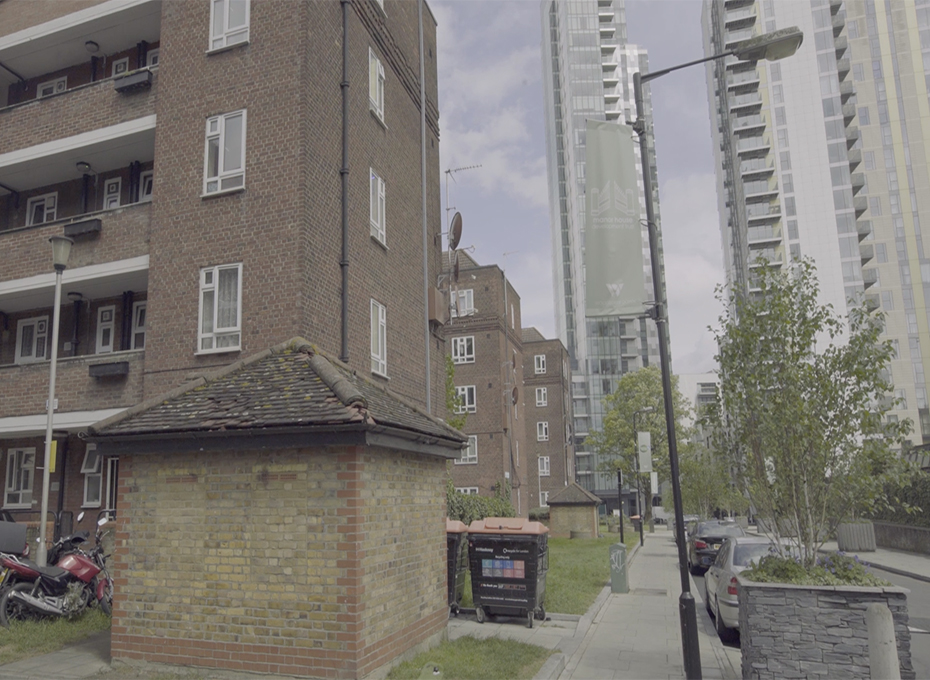
Invisible Walls is a series of hard-hitting short documentaries that reveal how social and physical boundaries collide to have a direct impact on people’s lives. A co-production between ft’work’s Clare Richards, award-winning documentary filmmaker-turned-architect, and grass-roots organisations, each film gives a platform to unrepresented voices, resulting in rarely heard frank and emotional exchanges.
Produced by Harrison Sharkey, the films were first screened, in collaboration with Sarah Wigglesworth, as part of the London Festival of Architecture 2019. The series responds to the Festival’s theme of ‘boundaries’ and explores how social and physical boundaries interact in different ways to have a direct and sometimes unintended impact on people’s lives.
Postcode (view film) responds to the recent rise in knife crime in the capital and demonstrates how an ostensibly innocuous street has serious and unexpected significance for those living within the postcode boundary it represents. Postcode is a fifteen minute single-take sequence that tracks the postcode boundary from Rockingham Estate in Kennington to Elephant and Castle. Accompanying this mundane view of a rainy street during rush hour are the voices of three young people directly affected by gang violence. They discuss openly together the fear these streets instil, how they are treated by the police, how it feels to lose friends, the affects of gang violence on their mental health and what should be done about it. The film was made in collaboration with Oasis Waterloo, a charity that provides invaluable services to the local community, including support for young people who have experienced gang violence.
In Without Walls (view film), over footage of the now deserted HMP Holloway site, five women who served time there share their experiences of prison, the impact it had on them and their ideas about how local ‘women’s centres’, proposed by Government as an alternative to prison, might provide support and prevent reoffending. Closely illustrating their comments, the footage is intercut with drawings by Erika, an artist who drew a ‘postcard’ to mark every day of her 3-year sentence. The film was made in collaboration with Clean Break, which works to create positive change in the lives of women with experience of the criminal justice system. Coinciding with the first screening of the film at Rich Mix there was a mass lobby at parliament by women’s groups, marking the 1st anniversary of the publication of the Government’s Female Offender Strategy and calling for immediate action in funding and implementing the policy.
In Regeneration Divide (view film) four young members of a local football team share their experience of the redevelopment of Woodberry Down Estate, one of Europe’s largest single site regeneration projects. The film follows a route, chosen by the group of five close friends, round the partly redeveloped estate where they have grown up. In this heart-felt account of ‘gentrification’ they talk about the destructive impact of regeneration on the existing community, the creation of new social divisions and why they now feel alien in their own area. The film was made in collaboration with Manor House Development Trust and Redmond Rover FC.
The screening of each film, during the London Festival of Architecture, was followed by 2-way conversations about the issues that they raised, between: Stu Thompson (Head of Youth Services at Oasis Waterloo) and Michael Barrett MBE; Rose Mahon (Nelson’s Trust) and Lady Edwina Grosvenor (One Small Thing); Simon Donovan (Manor House Development Trust) and Matt Bell (Lendlease).
You can see the screening event conversations and panel discussion here
